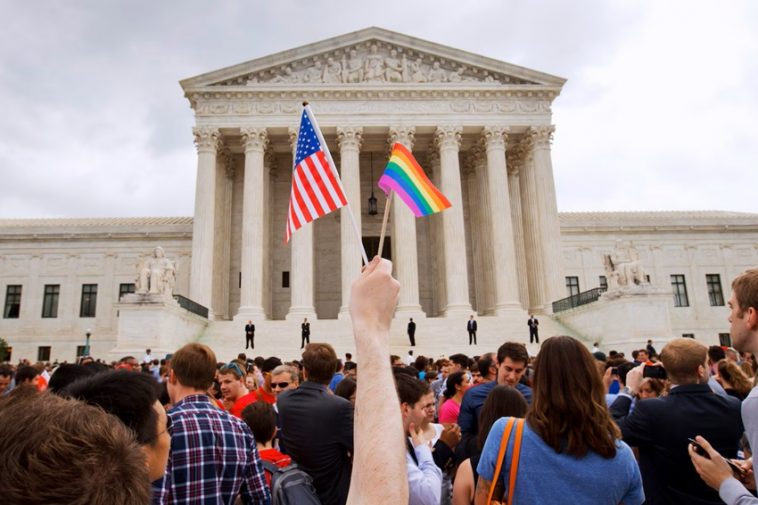Missoula, MT – The Montana Supreme Court has temporarily blocked the state’s 2023 law that seeks to prohibit certain medical treatments for transgender minors, in a significant ruling that centers on the state’s constitutional right to privacy. The decision upholds a previous ruling by a Missoula district court, preventing Senate Bill 99 (SB 99) from taking effect, at least for now.
In a near-unanimous opinion, the court ruled that the district court did not err in enjoining SB 99, a law backed by Republican lawmakers that would ban treatments such as puberty blockers, cross-sex hormones, and surgeries for minors diagnosed with gender dysphoria. The ruling, written by Judge Beth Baker, reaffirmed the state’s constitutional protections for privacy, stating that the law did not meet the high legal threshold required to restrict an individual’s medical rights.
At the heart of the Montana Supreme Court’s decision is the state’s constitutional right to privacy, which the justices determined was strong enough to block the law. The court found that SB 99 failed to demonstrate that gender-affirming care for minors posed a medically acknowledged, bona fide health risk—necessary to justify such a sweeping restriction on personal autonomy.
The justices argued that laws affecting privacy rights, particularly in the realm of medical treatment, must be narrowly tailored to address legitimate concerns. In the case of SB 99, the court found that the law’s blanket prohibition on specific medical treatments did not leave room for individualized decision-making between minors, their families, and healthcare providers. This, the court ruled, made the law overly broad and insufficiently specific.
SB 99, introduced by Republican Senator John Fuller of Kalispell, sought to restrict the ability of healthcare providers to prescribe gender-affirming treatments to minors. The law would also impose penalties on medical professionals who violated the ban and prevent public funds from being used for such procedures.
The ruling sided with plaintiffs, including transgender minors, their families, and healthcare providers, who argued that these treatments are evidence-based and widely endorsed by medical organizations such as the American Medical Association and the American Academy of Pediatrics. The plaintiffs contended that the law’s provisions interfered with critical health care decisions that should be made between patients and medical professionals.
In contrast, the state’s Attorney General’s office had argued that the law was necessary to protect minors from what it described as experimental and potentially harmful treatments. However, the Montana Supreme Court rejected this claim, agreeing with the district court that the evidence presented by the plaintiffs outweighed the state’s arguments.
While the court’s ruling was largely unanimous, there was some division among the justices. Justice Laurie McKinnon, in a separate concurrence, expressed the view that the court should have addressed the equal protection claims in the case, which are central to ongoing debates about transgender rights. McKinnon argued that discrimination based on transgender status constitutes sex discrimination and should trigger strict judicial scrutiny—a legal standard that would require the state to meet a higher burden of proof to justify the law.
Meanwhile, Justice Jim Rice dissented in part, disagreeing with the district court’s decision to block SB 99’s prohibition on public funding for gender-affirming care. Rice argued that the allocation of public funds is a matter within the legislature’s authority and that it should have been subject to a more lenient legal review.
Governor Greg Gianforte, who signed SB 99 into law last year, expressed disappointment with the court’s decision. In a statement, the governor reiterated his belief that minors should not undergo what he termed “experimental” medical procedures, citing concerns over the long-term effects of gender-affirming treatments.
“Children who struggle with gender identity deserve love, compassion, and respect,” Gianforte said. “While their young minds and bodies are still developing, they should not be subjected to experimental and permanent, life-altering medical and surgical procedures.”
In contrast, attorneys representing the plaintiffs celebrated the ruling, calling it a victory for transgender youth in Montana. Kell Olson, an attorney with Lambda Legal, hailed the decision as a crucial protection for transgender minors, emphasizing that Montana’s stronger constitutional protections for privacy ensure that transgender youth will continue to have access to essential healthcare for now.
“Fortunately, the Montana Supreme Court understands the danger of the state interfering with critical health care,” Olson said in a statement. “Because Montana’s constitutional protections are even stronger than their federal counterparts, transgender youth in Montana can sleep easier tonight knowing that they can continue to thrive for now, without this looming threat hanging over their heads.”
Although the ruling represents a significant setback for supporters of SB 99, it is far from the final word on the matter. The case will continue in the Missoula district court, with a trial scheduled for next summer. The outcome of this case could have broader implications for similar laws in other states, particularly as the U.S. Supreme Court is currently considering a related case from Tennessee.
For now, transgender minors and their families in Montana can continue to access gender-affirming medical treatments without the threat of SB 99 looming over them. However, as legal challenges continue to unfold, the future of transgender healthcare rights in the state remains uncertain.



